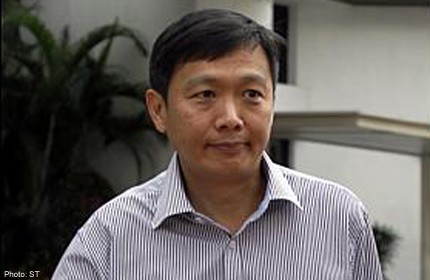MOM: Workers told of rights even before coming here

Little India Riot Inquiry
THE Manpower Ministry (MOM) defended Singapore's foreign worker policy on Tuesday, addressing a number of labour issues raised earlier by migrant worker rights groups as potential causes of workers' unhappiness in the public hearing into the Dec 8 riot.
Divisional director Kevin Teoh of MOM's foreign manpower management division told the committee he was surprised that rights group Transient Workers Count Too (TWC2) had testified it was feeding some 350 "abandoned workers" at its soup kitchen daily, given that the Employment Act clearly placed the responsibilities of housing and feeding work permit holders on their employers.
Last Tuesday, TWC2 president Russell Heng had told the committee workers "basically have to resort to charity to survive in Singapore" as they waited for their complaints - usually salary arrears or work injury compensation - to be sorted out.
While the law required employers to care for their workers in the interim, Dr Heng said TWC2's experience was that "in practice, this is not the case".
Mr Teoh disagreed with the notion that MOM abandoned these workers and said when an employer is unable or unwilling to fulfil its obligation, the ministry would step in to house the worker and provide food - sometimes in partnership with help groups such as the Migrant Workers' Centre - while a complaint is investigated.
"Sir, like you, I was equally surprised when he made the assertion here," said Mr Teoh. "We are now checking with him specifically which are those workers he is referring to. If he has the necessary information, we're prepared to look into it."
He also clarified that while a complaint is being investigated, there is no ban on a worker seeking alternate employment as long as permission has been granted him by MOM.
The ministry begins education efforts even before a worker arrives in Singapore, added Mr Teoh, with employers required to put in writing the wages, deductions and other terms in an employment letter to the worker in his native language.
Guidelines on worker obligations and rights are also issued to overseas training centres.
The guidelines are given once more to all workers when they are fingerprinted in Singapore for their work permit cards, and they have to take mandatory exams to test their knowledge of employment rights before they begin work.
"So, collectively, we don't believe that the worker does not know his basic rights, does not know where to go," said Mr Teoh. "There are many avenues available to him."
It is also untrue that workers are being forcibly repatriated, said Mr Teoh, another issue raised by rights activists, including Dr Heng and Workfair Singapore's Mr Vincent Wijeysingha, as it is a topic covered in the materials provided to guest workers.
He told the committee that workers could inform immigration officers at the checkpoint if they had ongoing employment-related complaints that were being investigated by MOM. The ministry dealt with 23 such cases flagged by the Immigration and Checkpoints Authority last year, he added.
Mr Teoh also clarified that of the 1.1 million foreign non-domestic workers in Singapore, about 330,000 were employment pass and S-pass holders earning at least $3,300 and $2,200 respectively. Of the remaining 770,000 work permit holders - who earn less than $2,200 a month - about 370,000 are Malaysians.
Dr Heng had told the committee that Singapore has one million low-wage foreign workers, if domestic helpers were included.
yanliang@sph.com.sg

Get a copy of The Straits Times or go to straitstimes.com for more stories.